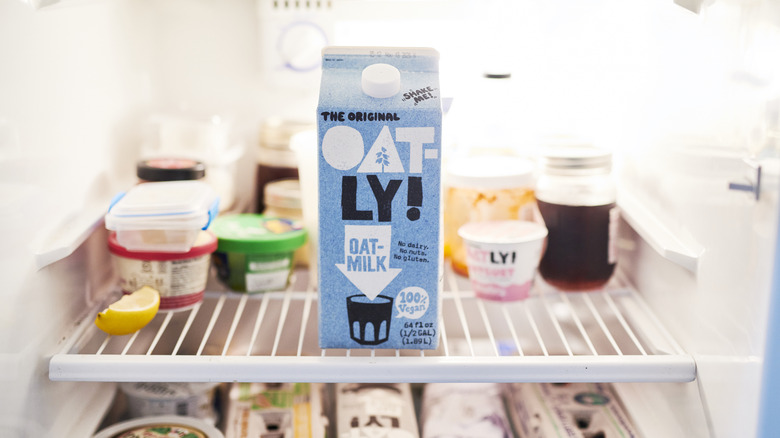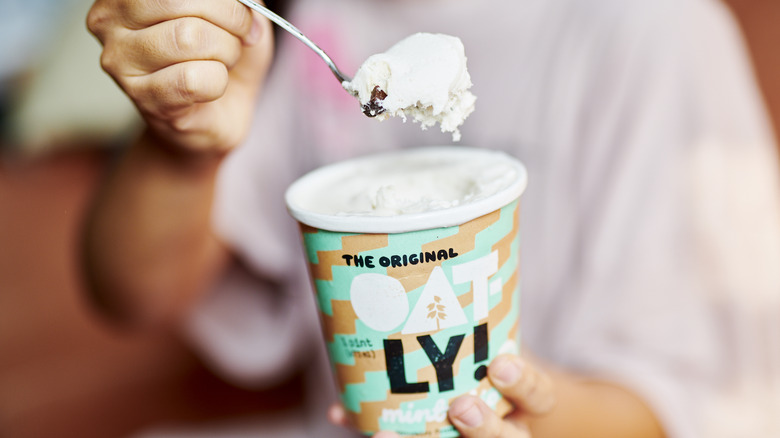Why Oat Milk Is Creamier Than Other Non-Dairy Milks
Oat milk has been in the news quite a bit recently as its popularity surges. Oatly, a Swedish company that makes the plant-based milk, made its stock market debut in May, and after a strong opening, is currently valued at $12.5 billion, as confirmed by The Motley Fool. Oatly is just one of many alternative-milk companies vying for a share in the rapidly expanding market, with oat milk in general now taking up 14% of sales in the nut milk retail market.
Oat milk isn't the first non-dairy drink to become popular in the US, but there is reason to believe that it might have more staying power than its competitors. Compared to other alternatives such as almond milk, coconut milk, and rice milk, oat milk is closer in taste and texture to real dairy — and creamier, too. As CNBC reports, Oatly first began marketing its products to US coffee shops five years ago on the strength of oat milk's greater similarity to milk (as well as its "froth-ability"). It slowly made its way into supermarkets and finally landed an endorsement from Starbucks earlier this year (as seen on Instagram). But even then its popularity caused a shortage at the coffee chain nationwide, as reported by Today.
Here's what makes oat milk so creamy
In terms of creaminess, texture, and taste, oat milk stands head and shoulders above other plant-based milks. In particular, the reason for that creaminess has to do, surprisingly, with water retention. As broken down on Metro, oat milk is produced in a manner similar to other nut and rice milks — by soaking the oats in water, blending them, and straining the mixture through cheesecloth or a nut milk bag, producing a somewhat milk-like product.
The key difference between oat milk and other alternatives, though, is that oats retain more water than nuts or rice during the soaking process. As a result, more of the fiber and protein-rich grain makes it through the straining and can be incorporated into the final product. Ultimately, oat milk has a thicker and creamier texture because it's "oatier" and is less mild in taste as well.
Whether oat milk is just another trend or is here to stay remains to be seen. But for now, if you enjoy dairy products but are looking for a plant-based substitute, it's a top pick.

